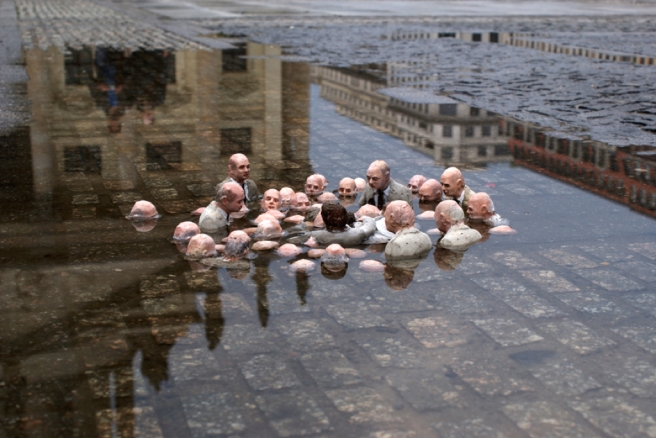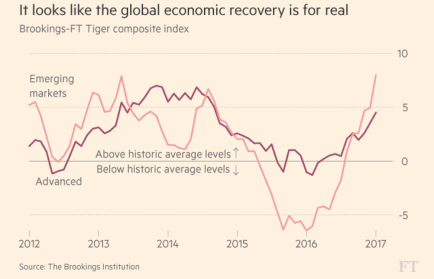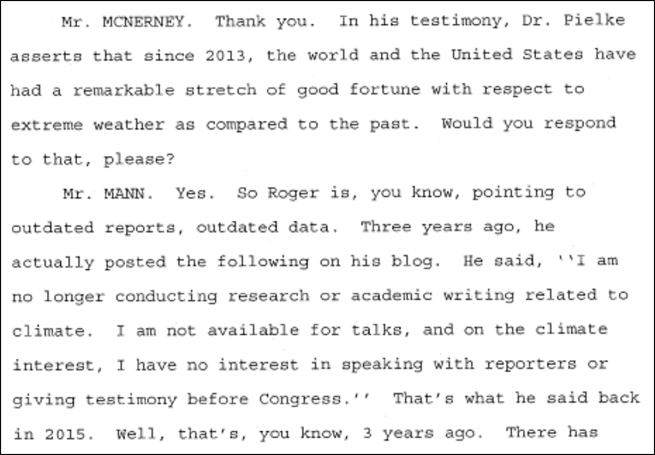 I’ve decided to publish an occasional newsletter on climate and energy issues. It is not part of my day-to-day research or writing, which is focused on sports governance and science policy. I’ve written a fair bit on the topics of climate and energy, including two books, and I may not have anything new or interesting to say. That’s OK, it’s just a blog.
I’ve decided to publish an occasional newsletter on climate and energy issues. It is not part of my day-to-day research or writing, which is focused on sports governance and science policy. I’ve written a fair bit on the topics of climate and energy, including two books, and I may not have anything new or interesting to say. That’s OK, it’s just a blog.
A few things to say up front:
- If you don’t like what I write or don’t like me, then don’t read it. It’s OK, I don’t mind.
- If you do appreciate the perspective, consider the tip jar to your right.
- If you’d like to engage, consider a comment, a Tweet or an email. I am happy to discuss or debate.
- If you choose to call me names or lie about me, oh so common in discussing climate, then you will be blocked or ignored.
- We’ll see how this goes. I expect to post about monthly.
Energy & emissions policies
- According to IEA global carbon dioxide emissions remained more or less level for the third year in a row. I have added in the red lines. A few thoughts follow.

- First, speculation that economic growth and CO2 emissions are “decoupling” is incorrect. They remain tightly linked.
- When CO2 emissions do not increase from year-to-year, that means that the rate of global economic growth is the same as the rate of decarbonization of the global economy (measured as CO2/GDP). The following figure shows growth rates in global GDP and CO2 from 2000-2016, also from IEA.

- To get a decent approximation of the rate of global decarbonization from the figure, just subtract the yellow line from the blue line. The fact that the difference between these two curves in recent years is the widest that it has been in 15+ years explains the recent slowdown in global emissions growth.
- Keep in mind there are two moving parts here, GDP and CO2 emissions (which are a function of carbon intensity of energy and energy intensity of the economy). Looking only at emissions is bound to deceive.
- There is emerging evidence that coal use in China (the 800 lb gorilla here) is increasing in 2017 after years of slowing down.
- There is also evidence that global GDP is increasing, as shown below from the Brookings-FT Tiger (Tracking Indexes for the Global Economic Recovery).

- In the first IEA figure above, the first red line I included highlights a similar global emissions slowdown in the early 1990s, followed by a rapid and sustained expansion. over the next several decades. GDP, energy intensity and carbon intensity rule all here – emissions are just a consequence.
- What rate of decarbonization is needed to hit stabilization targets of the sort envisioned by the Paris Climate treaty? More than double what has been seen in recent years, as explained by PwC (6.5% per year, every year til 2100 or so):

- For more on this topic follow the excellent @peters_glen (read this) and @bradplumer (read this).
- Good recent academic stuff: Jenkins and Thernstrom (PDF), Heard et al. (PDF).
- Bottom line: Keep your eye on the ball – its decarbonization (of the global economy) that is the metric to watch, not simply emissions.
- The fate of the Paris Agreement
- The Trump Administration is apparently wrangling over whether the US stays in or leaves the Paris Agreement.
- Many businesses, including ExxonMobil, support the agreement because, at least for them, it enables the expansion of the use of fossil fuels. Yes, you read that right.
- That fact alone doesn’t men that Paris is good or bad, but it should tell you that its fate under President Trump the agreement won’t determine the course of future decarbonization.
- I can just as easily spin a story where Trump pulling out is better for action than staying in – for instance if it mobilizes a search for new and better policy approaches. But it is a powerful symbol in an issue that is comprised mostly of symbolic actions these days.
- Bottom line: In the US the climate issue is mainly a means to other political ends. This is true for both political parties. It is also true for the leading voices among the climate science community.
- Lost in all the partisan politics is – the climate issue. I don’t see this changing much. However, if progrss is to be made in the US, it will be bipartisan, widely supported and with the anger and poison removed. Ya, good luck.
- Disasters
- @stevedarden posted up a link to my recent Tweet storm on the latest data on trends in disasters and climate change. Have a look at that for a comprehensive update of IPCC conclusions and most recent data.
- It has become a common ploy in public debates to completely ignore the work of the IPCC and government observations of actual extremes. For instance, here is (such as it is) the “debate” between me an Michael Mann at the recent House Science Committee hearing on this subject:


- Outdated reports? Outdated data? Bring it.
- Interestingly in all of the sound and fury following the recent Congressional hearing, I did not see one substantive response to anything I presented in my testimony – on scientific integrity or disasters. Crickets.
- Apparently if you cite the IPCC itself you may be … a climate denier. It’s nuts, I know, but the incantation of “97% … 97% … 97%” has apparently eliminated need for the IPCC or understanding what it actually says.
- Bottom line: I’ll debate anyone anywhere on this topic. No one will. I guarantee that.
- Scientific integrity in climate science
- Most climate scientists that I know want to do good work, love their jobs and just want to stay away from the politics and the food fights. Good for them. They are decent (and smart) folks doing important work.
- But the field has been hijacked by a few loud and powerful voices. Its not good for science or science in policy. I see this every single day, even if I try to look away.
- Side note: (because it crossed my desk), faster than you can say “Willie Soon,” here is a new peer-reviewed paper with its core grey-literature analysis paid for, at least in part, by billionaire Tom Steyer. The paper offers a masterclass in getting around COI and funding disclosures. No one cares, I know. Here are some details.
- Did you hear about the latest on “the pause”? … Seriously? WTF cares? it is utterly irrelevant to policy. Believe whatever you’d like. People loveto wage war over atmospheric temperature trends. It. Doesn’t. Matter.
- Poisoning the well. I’ve seen a lot the past few weeks, even for me. For instance, following last month’s House Science Committee a member of the US House of Representatives took to Twitter to label me (falsely) a “climate skeptic.” A Harvard professor analogized me to the Nazis. Michael Mann continued nonstop to label me a denier and suggest ominously and repeatedly that I am funded by fossil fuel interests. And several journalists acknowledged to me that they had mischaracterized me but then refused to correct. Another told me that I shouldn’t have come back (to discuss climate). It’s OK, that’s all par for the course. I’ve got tenure.
- More poison. Activist climate scientists and their allies, such as Joe Romm at CAP, are trying to get @BretStephensNYT fired from his new gig at the NYT, using the same playbook they used to get me booted at 538. I don’t think it’ll work as well in this case – Stephens is a much bigger fish and the editorial folks at the NYT are far better equipped to handle this sort of thing.
- But it should trouble everyone in the scientific community that the primary response of its leading voices when they encounter a voice they don’t like is to try to get that person fired from their job. That it doesn’t trouble anyone very much says something.
- By the way, if you haven’t read Stephens’ Daniel Pearl Memorial Lecture, do that now. It’s got nothing to do with climate, but it is very good.
- My entire testimony before House Science was about scientific integrity in climate science and how to secure it (here in PDF). The lessons here are not unique to climate and will be familiar to anyone familiar with The Honest Broker. The testimony was ignored by members of congress (both sides), journalists who reported on the hearing and of course, scientists.
- Finally, @oren_cass has a hard-hitting but ultimately very fair piece on the state of the climate debate at the National Review, Who’s the Denier Now?
- Until next time!
